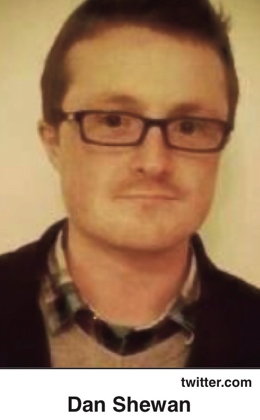Rascals case in brief
In the beginning, in 1989, more than 90 children at the Little Rascals Day Care Center in Edenton, North Carolina, accused a total of 20 adults with 429 instances of sexual abuse over a three-year period. It may have all begun with one parent’s complaint about punishment given her child.
Among the alleged perpetrators: the sheriff and mayor. But prosecutors would charge only Robin Byrum, Darlene Harris, Elizabeth “Betsy” Kelly, Robert “Bob” Kelly, Willard Scott Privott, Shelley Stone and Dawn Wilson – the Edenton 7.
Along with sodomy and beatings, allegations included a baby killed with a handgun, a child being hung upside down from a tree and being set on fire and countless other fantastic incidents involving spaceships, hot air balloons, pirate ships and trained sharks.
By the time prosecutors dropped the last charges in 1997, Little Rascals had become North Carolina’s longest and most costly criminal trial. Prosecutors kept defendants jailed in hopes at least one would turn against their supposed co-conspirators. Remarkably, none did. Another shameful record: Five defendants had to wait longer to face their accusers in court than anyone else in North Carolina history.
Between 1991 and 1997, Ofra Bikel produced three extraordinary episodes on the Little Rascals case for the PBS series “Frontline.” Although “Innocence Lost” did not deter prosecutors, it exposed their tactics and fostered nationwide skepticism and dismay.
With each passing year, the absurdity of the Little Rascals charges has become more obvious. But no admission of error has ever come from prosecutors, police, interviewers or parents. This site is devoted to the issues raised by this case.
On Facebook
Click for earlier Facebook posts archived on this site
Click to go to
Today’s random selection from the Little Rascals Day Care archives….
Click for earlier Facebook posts archived on this site
Click to go to
Today’s random selection from the Little Rascals Day Care archives….
McCrory tires of Sherlock Holmes impersonation
 June 4, 2015
June 4, 2015
“Gov. Pat McCrory on Thursday pardoned two half-brothers who were exonerated of murder after spending three decades in prison.
“The governor took nine months to make the decision….”
– From “Governor pardons McCollum, Brown” by Craig Jarvis in the Raleigh News & Observer (June 4)
Henry McCollum and Leon Brown, both intellectually disabled and now destitute, had been declared innocent last year by a Superior Court judge. But that exoneration, based on DNA evidence from the crime scene, wasn’t good enough for the governor, and even now the statement accompanying his pardon of innocence is lukewarm at best:
“It is difficult for anyone to know for certain what happened the night of Sabrina Buie’s murder…. I know there are differing opinions about this case and who is responsible….”
McCollum and Brown now qualify for $50,000 for each year they were imprisoned, up to a maximum of $750,000 – unless McCrory decides that process demands further investigation as well.
Read more here.
Shame links Edenton with other ‘ritual abuse’ sites
 Oct. 11, 2015
Oct. 11, 2015
“Satanism lacks a (Jim) Jones or (David) Koresh. Satanism has no Jonestown, no Waco, no Kool-Aid, no casual point of reference.
“This is because Satanic cults, as imagined in popular culture, do not exist.
“Still, some places across the country – West Memphis, Arkansas; Manhattan Beach, California; Edenton, North Carolina; Austin, Texas – belong to a brotherhood of cities united not by the stunned, silent grief of a tragedy like Waco’s, but by the shame of having left innocent families’ lives in ruin in the fervent pursuit of an imaginary evil….
“The ‘Satanic Panic’ of the 1980s and early ’90s was arguably even more frightening than a typical cult precisely because of this lack of a central figure or place; anybody could have been involved, and nobody was above suspicion….”
– From “Conviction of Things Not Seen: The Uniquely American Myth of Satanic Cults” by Dan Shewan at Pacific Standard (Oct. 8)
Prosecutors’ dream: Day-care den of evil-doers
Nov. 28, 2012
“There is nothing that makes us feel so good as the idea that someone else is an evil-doer.”
– Robert Lynd, Irish essayist (1879-1949)
The average Edentonian may have been too fearful and confused to feel good about demonizing the Edenton Seven – ah, but what a rush it must have given the cocksure therapists and prosecutors!
‘The prosecution failed at everything but….’

facebook.com/nancylambfordistrictattorney
Nancy Lamb
May 10, 2016
“Assistant District Attorney Nancy Lamb once said, ‘The goal of the prosecution is to seek justice.’
“If the defendants were guilty, the prosecution failed.
“If the defendants were innocent, the prosecution failed.
“The prosecution failed at everything but taking years from people’s lives, ruining their reputations, breaking up their marriages, dividing the people of a small town, wasting more than $1 million of the taxpayers’ money and smearing North Carolina’s reputation.”
– From “ ‘Rascals’ debacle ends, but damage is done,” an editorial in the Wilmington Morning Star (Sept. 27, 1999) after prosecutors dropped the last charges against Bob Kelly
![]()











0 CommentsComment on Facebook